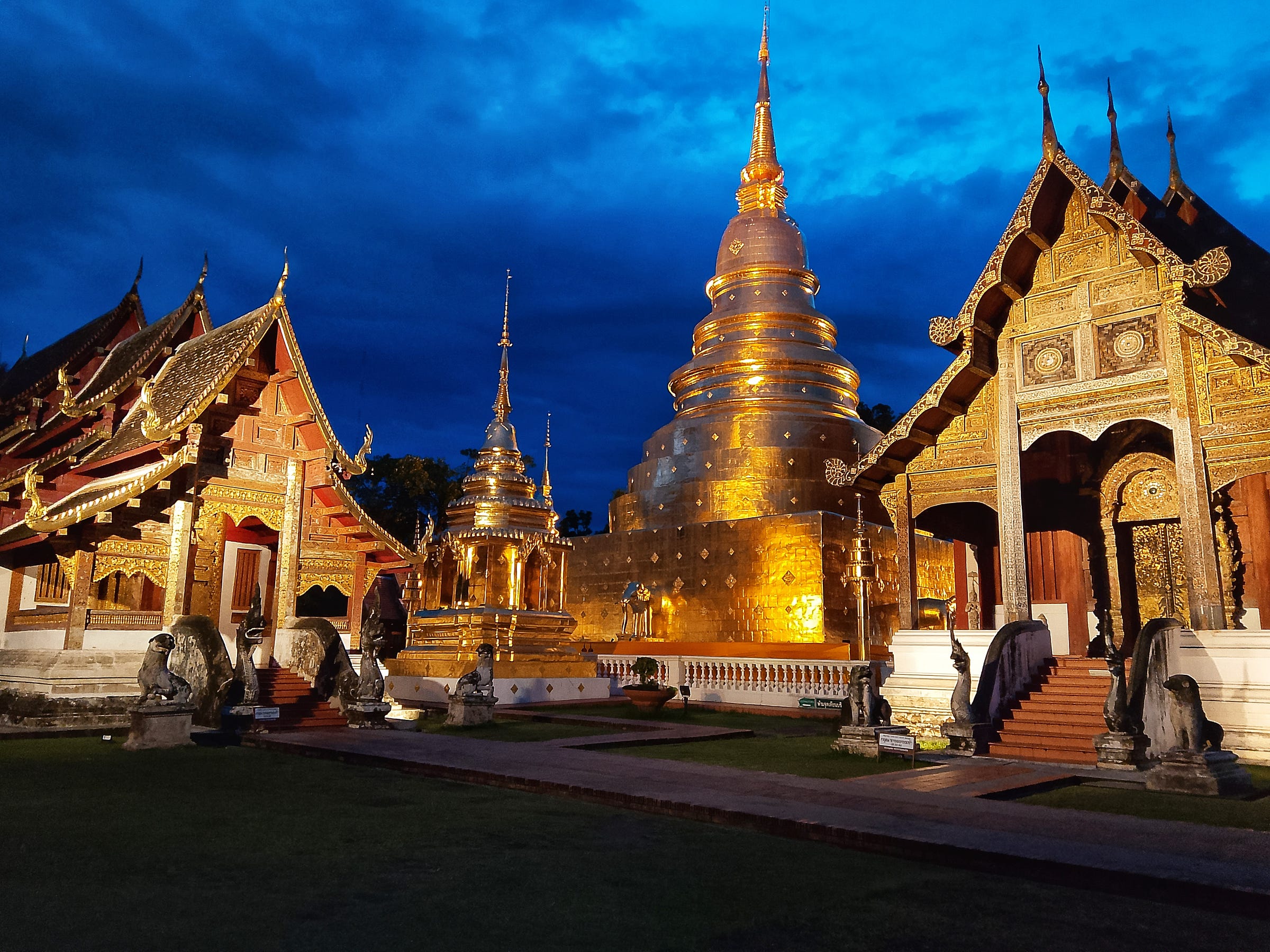Update on Our Life in Thailand
Long-term visas, language, community, housing, food, cats, prices, and more
This is the latest of many personal dispatches on culture, healing, and spirituality from a dual Canadian-American living in Thailand. Find popular free essays here and access to the rest of Sober Soulful (including the Sobriety Series) by upgrading here:

Thanks so much to those of you who left such caring, insightful comments on my last personal update about having two weeks to make an entirely new life plan. Thanks as well for your questions! I’ll be answering them below and invite you to leave new ones in the comments on this post.
As for the state of things, well…I do have some news to share.
First, we’ve decided to remain in Thailand for the next year or longer. It’s pricier than Cambodia, and getting a long-term visa is more expensive and involved. That said, the thought of boarding another airplane right now, or doing any sort of big move, makes my whole being go into lockdown.
My health hasn’t fully recovered, my cats are in no mood for another migration, and both Randy and I are back to work. So, Thailand it is. For the foreseeable future, we’re staying in Chiang Mai.
When I lived here two decades ago, I did regular cross-border trips to Indonesia and Myanmar, getting a thirty-day tourist visa on each reentry. Supposedly, Thai authorities only let you get away with that a few times nowadays. Regardless, it’s not a long-term solution so here’s what we’re doing:
Randy’s applying for a retirement visa (which requires being at least 50 years old and jumping through a few hoops, including putting 800,000 THB/~22,000 USD in a Thai bank account and not touching it for a while). All said and done, this visa gives you 16 months with the initial application and can be renewed annually if you meet the requirements.1
For the time being, I’m applying for an education visa, which requires enrolling in a language school and studying Thai conversation, reading, and writing for a year. While this is an extra expense (38,000 THB/~1,043 USD for annual tuition plus more in visa fees), I’ve made peace with the arrangement and am even excited.
With all of this, the logistics are far more complicated than I’m laying out here; we’ve hired a reputable “visa assist” company to hold our hands through the process. Still, I wanted to mention the barebones in case you’re considering something similar. In short: there are ways to make long-term stays in Thailand work, just don’t expect it to be simple or free.
Okay, on to your questions! Below, I address:
Community, whether we feel out of place, and meeting people here (Thais and foreigners)
Where we’re living and how we’re getting around (including costs and how it differs from my last time in Thailand)
How the cats are managing (including the goat milk situation)
How being here is impacting my relationship with Randy (my partner)
Food! (including prices of things I eat regularly)
Ready? Here goes.
Disclaimer: I’m a novice when it comes to Thai culture, language, history, food, etc. I’m also a new expat (again) after being away for decades. Think of what follows as less of a how-to guide and more the sort of personal, non-expert commentary I might share with close friends and family.
“Do you have an existing community in Thailand? Do you feel a sense of belonging?”
Oof. This is a hard one, because I have beautiful memories of belonging to a small, eclectic community of expats here two decades ago. Life then revolved around a meditation sangha, a quaint yoga studio, and a scene that no longer exists.





